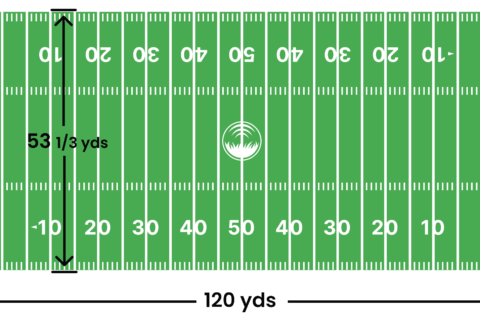Football is the world’s most popular sport. Millions of fans watch games every week. But how do football clubs make money for their owners? This article will explain everything.
Revenue Streams for Football Clubs
Football clubs have many ways to make money. Let’s look at the main revenue streams:
| Revenue Stream | Description |
|---|---|
| Ticket Sales | Money earned from selling match tickets. |
| Sponsorships | Money from companies that want to advertise. |
| Merchandise | Money from selling team shirts and other items. |
| Broadcasting Rights | Money from TV channels to show games. |
| Prize Money | Money earned from winning competitions. |
Ticket Sales
Ticket sales are a big part of a football club’s income. Fans buy tickets to watch games live. The more fans a team has, the more tickets they sell. Bigger stadiums also mean more ticket sales.
Sponsorships
Sponsorships bring in a lot of money. Companies pay to have their logos on team shirts. They also pay to have ads around the stadium. The better a team performs, the more sponsorship money they can get.
Merchandise
Fans love to buy team merchandise. This includes shirts, hats, scarves, and more. Popular teams sell a lot of merchandise. This helps them make a lot of money.
Broadcasting Rights
TV channels pay a lot of money to show football games. This is called broadcasting rights. The more popular the league, the more money they get from TV channels.
Prize Money
Prize money is another way teams make money. Winning competitions brings in a lot of cash. The more competitions a team wins, the more prize money they get.

Credit: www.linkedin.com
Financial Challenges for Football Clubs
Running a football club is not always easy. There are many financial challenges. Here are some of the main ones:
- High Player Salaries
- Transfer Fees
- Stadium Maintenance
- Operational Costs
High Player Salaries
Top players earn a lot of money. Clubs have to pay high salaries to keep their best players. This can be very expensive.
Transfer Fees
Buying new players can cost a lot of money. Transfer fees are the amounts clubs pay to get new players. Big clubs often spend millions on transfers.
Stadium Maintenance
Stadiums need to be kept in good condition. This means regular maintenance and repairs. Keeping a stadium in top shape can be costly.
Operational Costs
Running a football club involves many costs. This includes paying staff, travel expenses, and more. All these costs add up.
.png)
Credit: www.footballbenchmark.com
Financial Rewards for Owners
Despite the challenges, owning a football club can be very rewarding. Here are some of the financial rewards:
- Increased Club Value
- Global Brand Recognition
- Profit from Player Sales
- Community Support
Increased Club Value
Successful clubs increase in value over time. Owners can sell their clubs for a profit. The better the club performs, the higher its value.
Global Brand Recognition
Top clubs are known all over the world. This global recognition brings in more sponsorships and merchandise sales. It also attracts more fans.
Profit From Player Sales
Clubs can make money by selling players. If a player performs well, other clubs may want to buy them. Selling players can bring in a lot of money.
Community Support
Football clubs often have strong community support. This can lead to more ticket sales and merchandise purchases. A loyal fan base is very valuable.
Conclusion
Owning a football club can be very profitable. There are many ways to make money, but there are also challenges. High player salaries and transfer fees can be expensive. However, the rewards can be worth it. Increased club value and global recognition are just some of the benefits. With careful management, football clubs can be a great investment.








